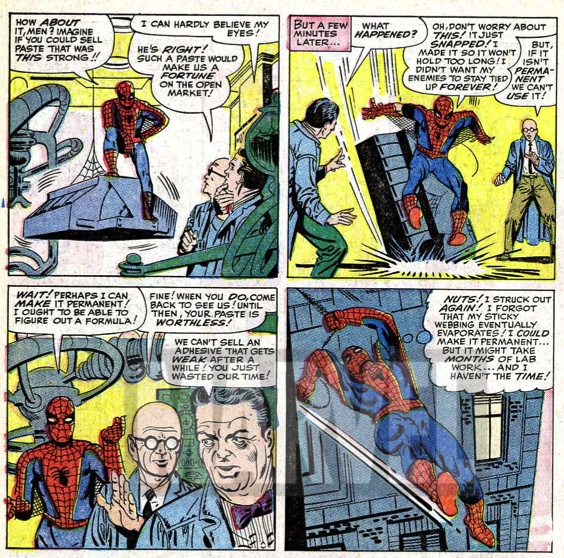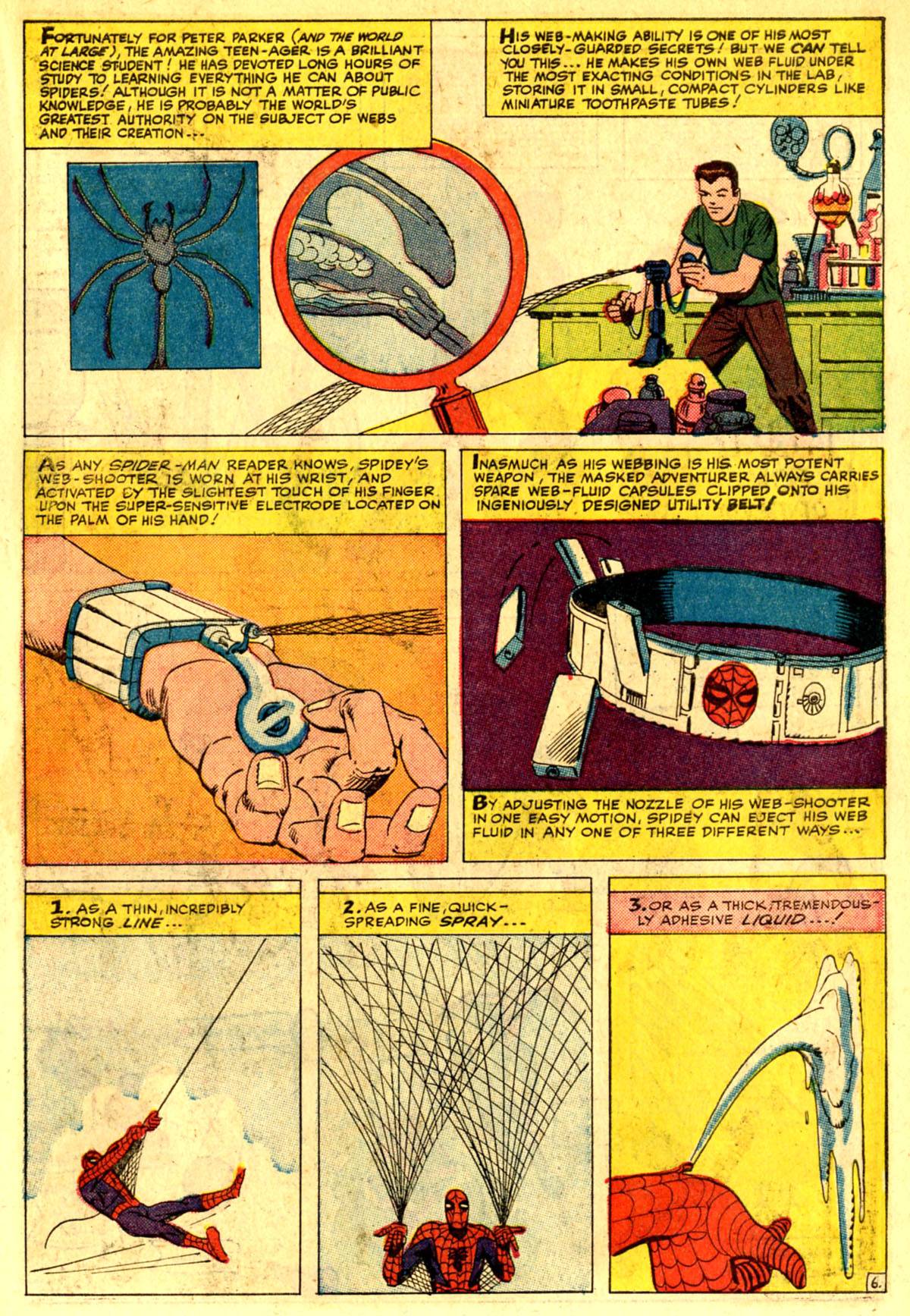Especially if he is not using his artificial but organic web.
Also what happens to the web that he leaves behind? Does it decay after certain time or lose it stickiness and drops off?
Especially if he is not using his artificial but organic web.
Also what happens to the web that he leaves behind? Does it decay after certain time or lose it stickiness and drops off?
It has been explained in various tellings of Spider-man that his webbing disintegrates or dissolves after a period of up to maybe an hour. Not only disintegrates, but disintegrates entirely, leaving no trace whatsoever.
This image says it happens just after a few minutes:

However, I have read a lot of Spider-man, and I can not recall ever seeing the time in which it dissolves be a plot point. For example, the webbing always lasts until the cops arrive to arrest a captured villain. I've never seen, for example, the cops be late, the webbing dissolve, and the crook get away. (I would love to be shown an example of that happening, though.)
When his webbing is inorganic, the length of time a cartridge of web fluid can last is never explained clearly. It's reasonable to assume that this information would only get in the way of a writer's freedom to create drama by having the web fluid run out at key moments. Web fluid running out does happen, we just never know exactly how much webbing Spider-man had shot leading up to it.
There's lots of explanation about the variety of webs, how far it can shoot, how many cartridges and whatnot, just not much explanation about exactly how much he has.
I don't think you will get an answer on that, because the question immediately raised is, how much does he need? How much webbing does it take, for example, to swing from midtown to downtown Manhattan? A writer could make up a number, but then they'd just be opening themselves up to the nitpicking of obsessive fans.

The organic web shooting has, so far as I know, only been proposed in the recent Spider-man movies. Within those movies, the amount he has available is never explained. We can guess that it would be tied to his biological function, similar to how much saliva a person can produce, and dependant on diet and whatnot. Since it's never addressed, though, it's entirely speculation.
In Spider-Man Animated series(1994), when Mysterio faked himself as Spider-man, Peter Parker found that Mysterio's duplicate web doesn't decompose with time like how his own does. That is the episode where Spider-man mentioned to the audience that his web decomposes with time and nothing is left after half an hour to one hour.
But how much web he can produce from one cartridge is never established in any animated show or comics I am familiar with. It seems to be based on the requirement of the story, sometime cartridge ends very soon and sometime does not.